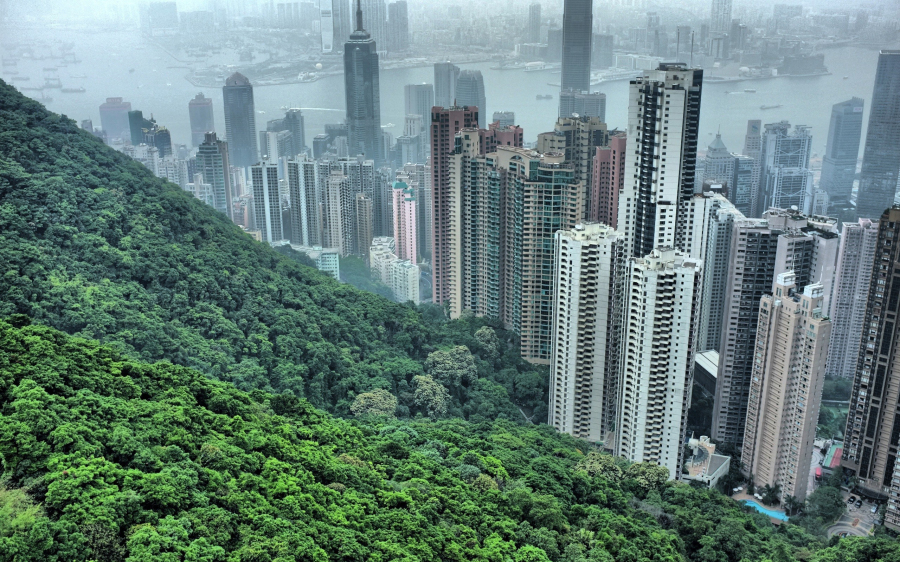Expiring land use rights
What can we expect?
By Sean Linkletter
 Origins and benefits of the Property Law
Origins and benefits of the Property Law
The origin of the current land use system in China stems from an amendment to Article 10 of the Constitution of the People's Republic of China made in 1988, allowing for private ownership of land use rights nationwide. The new law helped shift the responsibility of home construction and property management from the government onto real estate developers, while gradually easing an urban housing shortage by permitting the commoditisation of home building.
Under the new system, all land is still technically owned by the state, but land use rights can be purchased privately as leasehold title - meaning ownership of land or property over a fixed period - and are also transferable to a third party. There is no freehold title - meaning private ownership of land or property in perpetuity - in China and according to law, the government still maintains the right to reclaim the land and pay appropriate compensation to the land user in cases related to common good.
How does the leasehold system in China differ from other countries?
Although at its core China's leasehold system resembles other leasehold systems in Malaysia, Singapore and the United Kingdom, there are some differences. Unlike the UK system, leaseholders in China do not pay an annual ground rent to a freeholder - land or property owner who holds the legal title. While this sounds complex, it roughly translates to the fact that the government does not levy an annual fee on land use rights in China.
Leasing terms also vary: Malaysian leasehold terms of all types are typically 30 years while in Singapore, terms range from 30 to 999 years. In China, leasehold terms depend on the property type and range from 40-50 years for industrial and commercial land to 70 years for residential. The question is - what happens after that?

Specifics for extension of land use rights remain clouded
Put into effect on October 1st, 2007, Article 149 of the Property Law reassures owners of 70-year residential property that they can renew their leaseholds upon expiry. However, the Property Law did not specify the basis for renewal fees or list any provisions for the renewal of commercial, industrial or recreational property. For most of the country, the earliest commercial leasehold properties are set to expire sometime around 2030.
What are the risks for the market?
 The uncertainty after the Property Law has caused some investors to speculate as to whether the government will repossess commercial land upon expiration (i.e. large-scale expropriation) or charge exorbitant renewal fees that could negatively affect property prices. A study of reports and announcements made by mainland-listed REITs reveals two primary risk factors concerning the future value of leasehold property - uncertainty surrounding renewal costs and uncertainty of the renewal procedure.
The uncertainty after the Property Law has caused some investors to speculate as to whether the government will repossess commercial land upon expiration (i.e. large-scale expropriation) or charge exorbitant renewal fees that could negatively affect property prices. A study of reports and announcements made by mainland-listed REITs reveals two primary risk factors concerning the future value of leasehold property - uncertainty surrounding renewal costs and uncertainty of the renewal procedure.
Properties with only a short term remaining on their leasehold may suffer from lack of liquidity. Sellers and potential purchasers may have differing views on the renewal procedure and are unable to come to a consensus on pricing. Institutional investors, which commonly have five to ten-year holding periods, will face exit-risk - the risk of being unable to sell the property - once the remainder of leasehold becomes shorter than its desired holding period.
Lack of a clear policy also threatens the financial system as a whole. Properties serving as mortgage collateral may see their liquidity deteriorating as their leaseholds get closer to expiration, forcing banks to place their bets on the renewal policy and re-evaluate the quality of the collateral. This could undermine the accuracy of property values on bank balance sheets, as any valuation will inevitably reflect the appraisers' speculations on renewal policy.
So far, policies for renewal remain localised
Some Chinese cities that sold land use rights with shorter terms than the national standard are facing expiring of land use rights. This has led municipal governments to draft local policies to confront the issue.
Qingdao
In the coastal city of Qingdao, several residential properties reached expiration in 2011 after being granted 20-year leases in the late 1990s. According to local news sources, the properties have continued trading despite reaching expiration and the municipal government is still awaiting instruction from central authorities for an extension of the land use rights.
Wenzhou
In the eastern city of Wenzhou, several residential properties on special 20-25 year leaseholds reached expiration in early 2016, prompting the municipal government to ask for renewal fees equivalent to 33% or more of the home value if the owners wanted to keep the property, according to Mingtiandi, a property website. A later report by ifeng.com revealed that the renewal fees were calculated as the appraised value of the unit land price (on a per square meter basis) multiplied by the unit area. Using this method, the owner of a property worth RMB 24,000 per sqm would thus need to hand over a renewal fee of 33% his total home value if the land in which his property sits was appraised at just RMB 8,000 per square meter. The curiously high renewal fees brought public attention to the renewal policy and the effect it might have on the wealth of homeowners nationwide.
Shenzhen
Shenzhen was the first city to allow the use of state-owned land for a fixed number of years in the 1980s. The then-prevailing pilot programme for land administration allowed for allocation by governments and state-owned enterprises of land use rights to private owners for 20, 30 or 50 years depending on the usage. While leasing terms differed slightly from the current regime, the pilot programme set the precedent of private ownership of land-use rights for the rest of the country.
Various land plots began to reach expiration in the 2000s and the Shenzhen municipal government published a local renewal policy in 2004 to extend land use rights allocated during the pilot programme to fit the national standards (eg. 20-year office land granted a 30-year extension for a total of 50 years). Under this policy, the land user could apply for an extension without usage change if they paid a renewal fee based on the benchmark land price - the initial auction price on the land set by the local government.
 What should we expect from governments moving forward?
What should we expect from governments moving forward?
However, we recognise that all of the above examples were special cases of 20- to 30-year lease terms and hence not a meaningful precedent for the rest of the country. There is no reason to expect renewal fees to be onerous or prohibitive. Charging exorbitant fees would be economically destructive and run counter to the goals of maintaining social stability and economic growth. Refusing the right to renewal would be similarly destructive, as most Chinese citizens still hold the majority of their wealth in form of property. Therefore, it seems to be in the best interest of everyone to preserve the inheritability of real estate assets.
While we expect municipal governments to streamline the renewal process to lessen the economic burden on homeowners and encourage more investment, the expiration of land use rights provides them with unique opportunities. For one, expiration of land use rights allows governments to maintain the option of revitalising urban areas by repurposing obsolete or distressed properties that are not economically productive or have surpassed their productive life. The termination of 50-year leaseholds on industrial land in core areas is another possibility, allowing governments, owners and investors to transfer ownership to developers, who can better utilise the land.
Land lease expiration also provides municipal governments with an opportunity to implement new tax policies. At present, local governments rely largely on one-off sources of tax revenue - from the sale of the land itself to stamp duties on the aggregate value of commercial leases. Leasehold renewals provide an opportunity to collect ongoing revenue and even to establish a property value on which annual property taxes could be more widely assessed.
We believe that the government will strike an appropriate balance between public revenue and social stability. Prompt implementation of a clear policy on the renewal of land use rights will undoubtedly benefit the Chinese economy and society as a whole.
Compiled by Sean Linkletter, Analyst, Research, JLL with the input of JLL Valuation Advisory Services (VAS):
JLL's Valuation Advisory Services team provides professional valuation and property consultancy advice to suit your real estate needs. Our team has a proven track record in working with both local and multinational clients in the People's Republic of China (including Hong Kong and Macau) and across Asia. VAS can be contacted at: Alkan.Au at ap.jll.com
---END---
Â